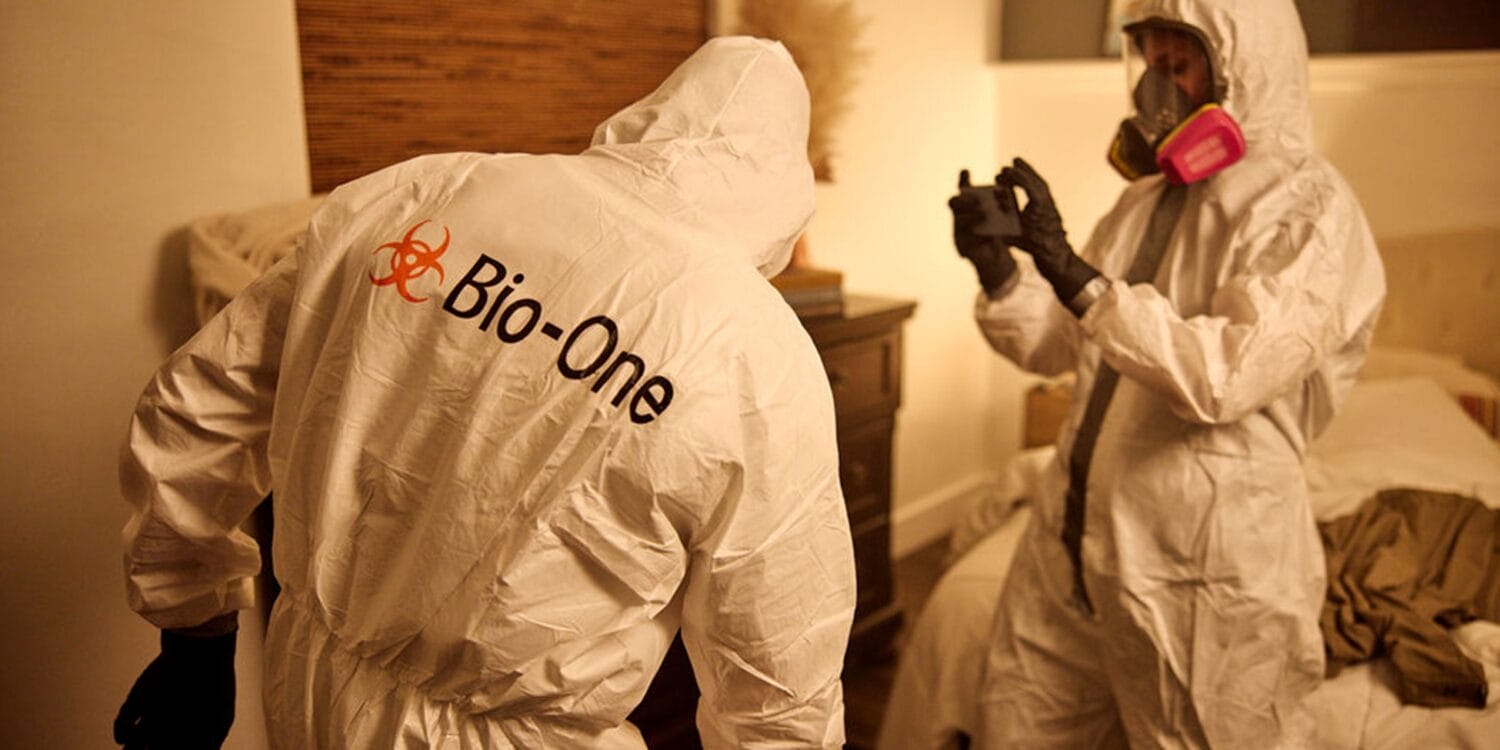
Sometimes, tragedy happens in silence. A person passes away alone, and no one notices right away. Days, maybe even weeks, go by.
Meanwhile, nature takes its course. The body begins to break down, releasing fluids and strong odors that don’t just linger—they spread. Walls, floors, and furniture absorb the damage.
Harmful bacteria and pests move in, making the home unsafe. The longer it goes unnoticed, the worse it gets. By the time someone discovers what happened, the cleanup can be overwhelming.

Most people think cleaning is simple—grab some soap, water, and maybe a little disinfectant. But in situations like this, regular cleaning just isn’t enough. The dangers run deeper than what you can see or smell.
When a body decomposes, biological fluids don’t just stay on the surface. They seep into:
As these fluids spread, bacteria and pathogens grow. The smell isn’t just unpleasant—it’s a warning sign of harmful biohazards in the air and on surfaces.
Without proper cleanup, these dangers can make people sick and cause long-term damage to the property.
Trying to clean it up without professional help can make things worse. Scrubbing or using household cleaners can spread contamination instead of eliminating it. Plus, without industrial-grade odor neutralizers, the smell can linger for months—or even years.
That’s why professionals like Bio-One are essential. Using advanced tools and proven techniques, they:
With experts handling the cleanup, property owners and tenants can focus on moving forward instead of dealing with the dangers left behind.

Unattended death cases present unique challenges for insurance adjusters. Unlike fire or water damage, decomposition introduces biohazards that can spread far beyond the immediate area.
The policyholder—whether a homeowner, landlord, or property manager—may be dealing with an emotionally overwhelming situation, making clear communication and guidance essential.
Coverage for biohazard cleanup depends on how the policy is written. Adjusters must determine:
Unattended deaths are distressing for policyholders, and adjusters are often the first point of contact. Managing these claims requires both technical expertise and compassion. Here’s how adjusters can help:
By understanding the complexities of decomposition cleanup and guiding policyholders through the process, adjusters can make a difficult situation easier while ensuring proper risk management for the insurer.

Unattended deaths aren’t just difficult—they’re delicate. As an insurance adjuster, you’re assessing property damage and guiding a policyholder through one of the most challenging moments of their life. The process can be overwhelming for them, full of questions about coverage, costs, and what comes next. That’s where Bio-One steps in.
At Bio-One, we understand that this isn’t just another claim. It’s someone’s home, someone’s responsibility, and often, someone’s loss. We aim to make your job easier by handling the biohazard cleanup efficiently, professionally, and compassionately.
We work directly with both insurance adjusters and policyholders to ensure a smooth, stress-free process.
We take care of everything so that adjusters can focus on claim resolution. Our services include:
Insurance adjusters shouldn’t have to handle biohazard cases alone. With Bio-One, you get a partner who understands the sensitive nature of these claims and works efficiently to clean the property while keeping policyholders informed and supported.
We ensure everything is handled carefully so you can focus on what you do best.
If you’re handling an unattended death claim, let Bio-One be your trusted cleanup resource. We’re here to help every step of the way.
An unattended death occurs when someone passes away alone and their death remains undiscovered for an extended period. This can lead to significant biohazard risks due to decomposition.
Decomposition releases biological fluids and harmful bacteria that seep into flooring, walls, and furniture. Professional biohazard cleanup ensures complete decontamination, odor removal, and proper sanitization to prevent health hazards.
No, DIY cleaning can spread contamination and expose you to biohazards. Household cleaning products are not strong enough to neutralize harmful bacteria and odors. Professional cleanup is required to restore safety.
Coverage depends on the policy. Some insurance plans classify biohazard cleanup under property damage or crime scene cleanup, while others may exclude it. Check with your insurer or work with Bio-One to determine coverage.
Decomposition fluids can soak into carpets, subfloors, drywall, and even HVAC systems, causing extensive damage and requiring specialized cleaning, decontamination, and repairs.
Insurance adjusters assess the extent of contamination, determine coverage, and guide policyholders through the claims process. They may also work with biohazard remediation teams like Bio-One for damage assessments and cleanup documentation.
The duration of the cleanup depends on the severity of the situation. Bio-One responds quickly and typically completes decontamination within a few days, but structural repairs may take longer.
Yes, Bio-One provides detailed reports, before-and-after photos, and itemized invoices to assist adjusters and policyholders in processing claims efficiently.
Improper cleanup can leave harmful bacteria, lingering odors, and structural damage. This can pose serious health risks to future occupants and decrease the property’s value.
Bio-One works directly with adjusters to assess damage, provide cleanup estimates, and ensure compliance with health regulations. Our fast response times and thorough documentation make claim approvals easier and quicker.



